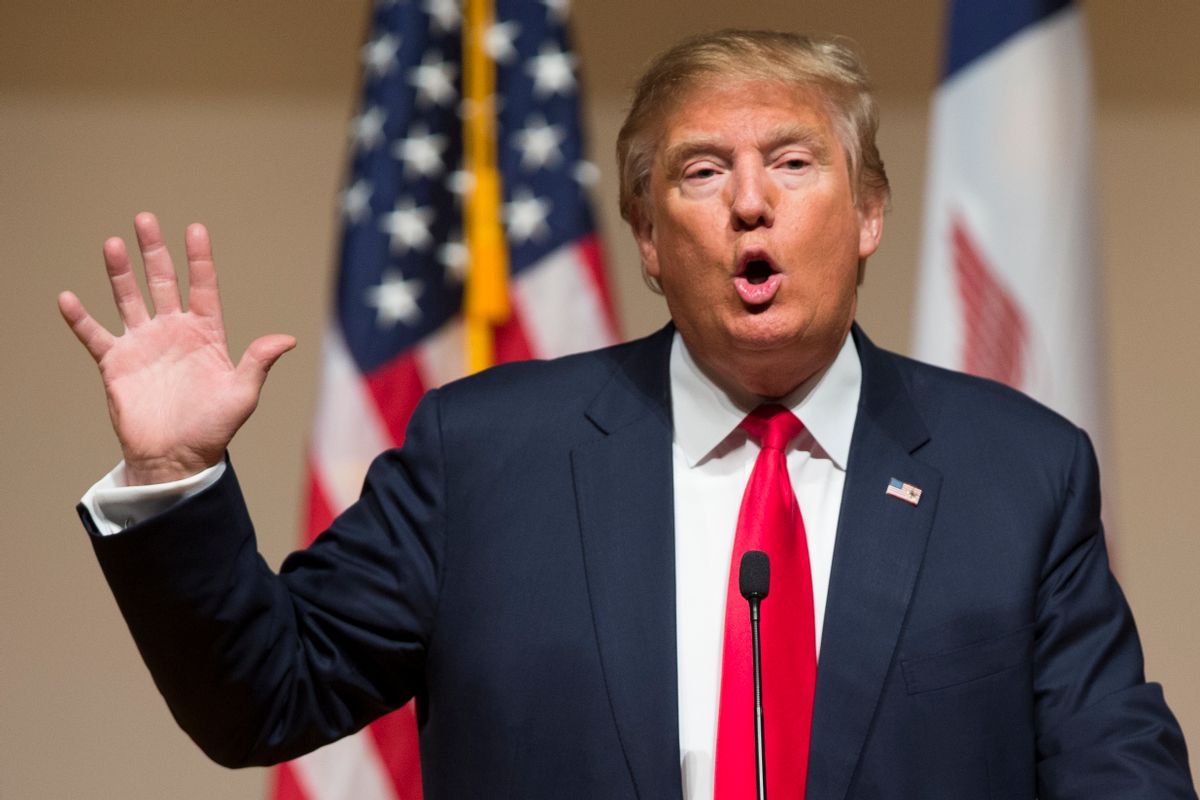This piece originally appeared on BillMoyers.com.
By now, even those who retained slight hope after the election that maybe things wouldn’t be so bad after all have shed their blinders and come to understand that we’re in for the worst of times. That’s no “populist” administration taking shape; instead the president-elect is assembling a coterie of billionaires and millionaires that surpasses in wealth, by orders of magnitude, any previous presidency.
So it’s time to stop the “Let’s see if they throw us a bone on this issue or that issue” and realize that big business is in the saddle, that any meaningful government oversight of business, consumer protection and the media is targeted for extinction, and that much of the public interest progress of the last century is on the chopping block.
I mention “media” because broadcast and cable played the formative role in letting — encouraging — this sad state of affairs to happen. While big media organizations were raking in billions with carnival coverage of the 2016 campaign, real issues coverage and in-depth journalism were just about nowhere to be found on TV and cable programs. A few big newspapers did better, but still the civic dialogue was starved to such an extent that most voters today don’t know quite what they voted for. They’re about to find out.
Conservative think tanks have been tapped by the president-elect to formulate his communications policy. Every day finds a new transition adviser on board who loudly trumpets undying opposition to an open internet, net neutrality, community broadband and bringing affordable, high-speed connectivity to every American. The current Federal Communications Commission (FCC) made real progress on many of these fronts, although much remains to be done. But the incoming FCC that seems to be taking shape will be out to gut as much of this as it possibly can. It will be aided and abetted — and sometimes led — by a Congress in which the majority is on a parallel track, and policy is largely dictated by ideological zealots.
We the people need to realize this affects each of us, and that these threats are not down the road six months or a year from now — they’re here. For citizens, the Trump approach means getting rid of consumer protections, jacking up prices for everything from phone service to cable set-top boxes; slowing the deployment of broadband in rural America as well as for Native Americans, disability communities and inner cities; turning the internet over to a privileged few; and maybe even eliminating the FCC, which the Trump transition team actually appears to be considering.
But there’s more. For democracy to survive, media must thrive — media that serve the people, provide the news and information we need to make informed decisions about the future of our country, understand their obligation to serve the public interest first and foremost, and help protect us from the depredations of monopoly and oligopoly markets.
Central to this is an internet that can support quality journalism. There is no viable model for this today, and most experts agree that the kind of investigative journalism that once thrived in traditional media like newspapers and television has not transferred to the internet, even while it disappears from the older media.
If we were smart, we would be tackling the next generation of internet issues. How do we do stop online consolidation that gives control of multiple media outlets to a few giants at the expense of start-ups and garage innovators? What about rampant commercialization — do you notice more ads online recently? What about ridiculous copyright laws that lock much of our history and heritage in the vaults of a few vested billionaires?
It’s a great holiday season for big media, already licking their chops as visions of sugarplums dance in their heads. Not so much for you and me.
“OK, I get it,” I hope you’re saying. But then your question should be, “What do we do now?” Unfortunately, Trump’s advisers are way ahead of us in thinking this through. So, No. 1, we’ve got to get back in the arena. The grass roots are always where real reform begins and builds. Gifts don’t come down the chimney from a beneficent Congress (sorry for the oxymoron!). They come from pressure at the grass roots — from you. So this is no time to pause and see what the new guys will do once they take over. This is the time to do everything we can to keep their dance of the sugarplums from becoming reality.
I know you’re tired; so am I. And we’re all in a funk. But waiting for the night before the next big FCC vote or two days before the next critical roll call on Capitol Hill is a strategy for defeat. There may be fewer levers out there to push post-election, but the reality is we have never come close to pushing all the levers that already exist. You’re a lever; so are your family, friends, neighbors and colleagues. So are whatever independent media left standing. So are local, state and national public interest groups. It’s time NOW to organize, coordinate and deploy these resources, and others, into battle. Share and write about your thoughts with anyone who will listen or read, seek out local and national decision-makers and let them know an open internet and affordable communications aren’t partisan issues: they impact each and every one of us.
I’d welcome your ideas about next steps. You can send them to me at mediaanddemocracy@commoncause.org. Meanwhile, here in the nation’s capital, we will continue working on behalf of media reform. Our goal is media that sustain democracy’s dialogue and protect the public interest; our strategy must be mobilizing all our resources, especially the grass roots; and our tactical challenge is devising workable and coordinated action plans to make it happen.
Let’s get on with it.



Shares